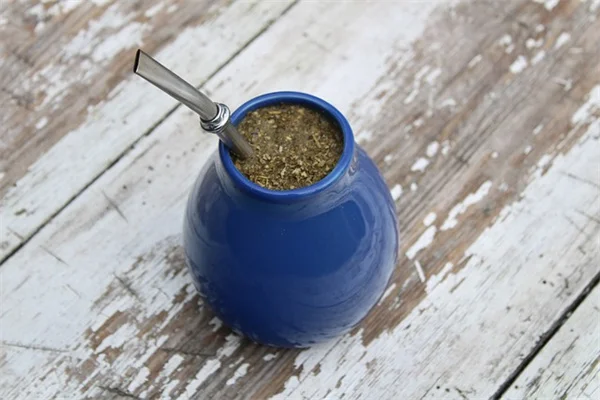Michael Phelps' 5 Game-Changing Mental Health Tips for 2023
Advertisement
Wondering how Michael Phelps maintains mental wellness after Olympic glory? The answer is simple: he's made mental health a daily priority, just like his swimming training. After battling post-Olympic depression and suicidal thoughts, Phelps discovered that true wellness comes from balancing five key areas: sleep, movement, breathing, disconnecting, and reaching out for help.Here's the deal - we all know Phelps as the most decorated Olympian ever, but his mental health journey might be even more inspiring than his 28 medals. I didn't want to be alive at one point, he admits. That's why he's teamed up with Talkspace to launch the 'Start from the Top' campaign, helping regular folks like you and me build better mental health habits.The best part? You don't need Olympic-level discipline to benefit. As Phelps says, If you create habits, they become second nature. Whether it's aiming for quality sleep or taking 5-minute breathing breaks, these strategies work because they're practical, not perfect. Ready to dive in?
E.g. :Duloxetine for Chronic Pain: The Only Antidepressant That Works
- 1、Michael Phelps' Mental Health Journey: From Olympic Glory to Personal Growth
- 2、Start From the Top: Phelps' 5-Point Mental Health Plan
- 3、The Digital Detox Challenge
- 4、Breaking the Silence on Mental Health
- 5、Beyond the Pool: How Phelps' Story Impacts Everyday People
- 6、Practical Tools You Can Use Today
- 7、When to Seek Help - And How
- 8、The Unexpected Benefits of Prioritizing Mental Health
- 9、FAQs
Michael Phelps' Mental Health Journey: From Olympic Glory to Personal Growth
The making of a champion - and the struggles behind the medals
You know Michael Phelps as the most decorated Olympian in history, but did you know his journey with mental health has been just as intense as his swimming career? At age 8, his coach taught him to write goals on paper - a habit that stuck through 28 Olympic medals. "I'm old school," Phelps laughs. "I need to see my goals when I wake up!"
But here's the reality check: even champions struggle. After the 2004 Athens Olympics where he won 6 gold medals, Phelps experienced what he calls "post-Olympic depression." Imagine winning at the highest level and still feeling empty inside. That's when he realized physical achievements alone don't guarantee happiness.
The turning point that saved his life
In 2014, after his second DUI, Phelps made the bravest decision of his life - he asked for help. "I didn't know how to do it or what to do," he admits. But therapy changed everything. "My shoulders lowered, I could process things easier, and life became simpler."
Now here's a question for you: When was the last time you checked in with your mental health? Phelps' story shows that even the strongest among us need support sometimes. His experience proves that reaching out isn't weakness - it's wisdom.
Start From the Top: Phelps' 5-Point Mental Health Plan
 Photos provided by pixabay
Photos provided by pixabay
1. Sleep: The foundation of everything
Phelps aims for 7.5-8 hours nightly with 20% REM and 20% deep sleep. "When I hit these numbers, I'm firing on all cylinders!" Why does this matter? Dr. Natalie Dattilo explains sleep helps process emotional information. Without it, our brains struggle to remember positive experiences - crucial for mood regulation.
Here's a quick comparison of sleep benefits:
| Sleep Quality | Mental Benefits | Physical Benefits |
|---|---|---|
| Optimal (7-9 hrs) | Better mood regulation | Faster recovery |
| Insufficient (<6 hrs) | Increased irritability | Weakened immunity |
2. Move: More than just exercise
"Movement saved my life," Phelps states simply. But you don't need Olympic training! Therapist Gina Moffa explains movement releases endorphins and creates mindfulness. Even 10 minutes of walking can shift your mental state.
Phelps' tip? "Start small. I perfected my kick first, then moved to other techniques." The lesson? Build habits gradually - they'll become second nature.
The Digital Detox Challenge
3. Disconnect: Finding space in a connected world
Our always-on culture creates anxiety, says Moffa. Phelps takes 5-10 minute breaks throughout the day. "Showers and quick naps help me reset." His advice? "Put your phone away before bed. Your brain will thank you."
When did you last go an hour without checking your phone? Phelps shows that disconnecting isn't about rejecting technology - it's about reclaiming your attention. Even small breaks can make a big difference in mental clarity.
 Photos provided by pixabay
Photos provided by pixabay
1. Sleep: The foundation of everything
Dr. Dattilo calls breathing "the remote control for your nervous system." The magic number? 5-6 breaths per minute. Phelps jokes, "In water, breathing was easy. On land? I'm still working on it!"
Try this now: inhale for 4 seconds, exhale for 6. Feel calmer already? That's the power of breath work - simple, free, and always available.
Breaking the Silence on Mental Health
5. Talk: The most powerful tool of all
Harvard research shows connection is the #1 modifiable factor against depression. Phelps credits therapy with saving his life. "I had to try different therapists - and that's okay!" His campaign with Talkspace offers free therapy sessions to help others find their perfect match.
Here's the beautiful part: Phelps isn't just sharing advice - he's living it. From Olympic pools to parenting, these five principles guide his daily life. And if they work for a 28-time medalist, they might just work for you too.
Remember, mental health isn't about perfection - it's about progress. As Phelps says, "Some days I still feel like I got hit by a bus. But now I have tools to get back up." That's a champion's mindset we can all learn from.
Beyond the Pool: How Phelps' Story Impacts Everyday People
The ripple effect of vulnerability
When Michael Phelps first spoke openly about his mental health struggles, something remarkable happened - the conversation changed globally. Suddenly, people who'd never won an Olympic medal could relate to the greatest swimmer of all time. "I get stopped in airports now by parents thanking me," Phelps shares. "Their kids finally understand it's okay to not be okay."
Here's what we often forget: mental health doesn't discriminate. Whether you're a gold medalist or a high school student, anxiety and depression don't care about your achievements. That's why Phelps' story resonates so deeply - it reminds us that strength isn't about never struggling, but about how we handle the struggle.
 Photos provided by pixabay
Photos provided by pixabay
1. Sleep: The foundation of everything
Before therapy, Phelps measured success solely by medals and records. Now? He talks about being present for his kids' bedtime stories as his greatest victory. This shift challenges our cultural obsession with productivity. What if we valued emotional wellbeing as much as professional achievements?
Consider this: the average American checks their phone 96 times daily but only spends 15 minutes in meaningful conversation. Phelps' journey invites us to redefine what truly matters. Maybe success looks more like quality sleep than a packed schedule, more like honest conversations than social media likes.
Practical Tools You Can Use Today
Creating your personal "mental health playbook"
Phelps didn't transform overnight - he built habits gradually. Here's how you can start:
1. The 5-Minute Rule: When overwhelmed, set a timer for five minutes of deep breathing or walking. Often, that's enough to shift perspective.
2. Goal Journaling: Like Phelps, write three daily intentions - not just work tasks, but emotional goals too ("Today I'll be patient with myself").
Technology as a tool, not a tyrant
We often blame phones for stress, but used wisely, they can help. Try these apps Phelps recommends:
| App | Purpose | Phelps' Tip |
|---|---|---|
| Headspace | Meditation | "Start with 3-minute sessions" |
| Sleep Cycle | Sleep tracking | "Don't obsess over data - use it as a guide" |
The key? Technology should serve you, not control you. Phelps keeps his phone in another room during family meals - a small habit with big impact.
When to Seek Help - And How
Recognizing your "enough is enough" moment
For Phelps, it took a DUI arrest to seek help. But you don't need to hit rock bottom. Watch for these signs:
- Consistently feeling drained despite adequate sleep
- Losing interest in activities you once loved
- Irritability that affects relationships
Would you wait to treat a broken arm? Mental health deserves the same urgency. Phelps' story teaches us that asking for help isn't defeat - it's the first stroke toward recovery.
Finding the right support system
Therapy isn't one-size-fits-all. Phelps tried several therapists before finding his match. "It's like dating," he jokes. "You wouldn't marry the first person you meet!" Here's what worked for him:
- Look for someone specializing in your specific challenges (sports psychology for athletes, CBT for anxiety, etc.)
- Don't hesitate to switch if the fit isn't right after 3-4 sessions
- Consider group therapy - sharing with peers can reduce isolation
Remember, even champions need coaches. Your mental health journey deserves the same support as your career or fitness goals.
The Unexpected Benefits of Prioritizing Mental Health
Improved performance in unexpected areas
After addressing his mental health, Phelps noticed surprising improvements beyond emotional wellbeing:
- Better decision-making under pressure
- Increased creativity in problem-solving
- More authentic relationships
This isn't just anecdotal - studies show employees who prioritize mental health are 31% more productive. When we care for our minds, everything else improves.
Breaking generational patterns
Phelps openly discusses how his journey helps him parent differently than he was raised. "My kids will grow up knowing it's okay to cry," he says. This shift matters because:
- Children mirror emotional regulation from caregivers
- Open conversations reduce stigma early
- Healthy coping mechanisms become second nature
By sharing his story, Phelps isn't just helping individuals - he's helping reshape how future generations view mental health. And that might be his most lasting legacy.
E.g. :Open Up - MPF
FAQs
Q: What are the 5 mental health tips from Michael Phelps?
A: Michael Phelps focuses on five key areas for mental wellness: sleep, movement, breathing, disconnecting, and talking to someone. He recommends treating these like athletic training - start with one area for 30 days until it becomes habit, then add another. For sleep, he aims for 7.5-8 hours with specific REM targets. Movement isn't about intense workouts but consistent activity. Breathing exercises help regulate emotions, while disconnecting from technology reduces anxiety. Most importantly, Phelps emphasizes reaching out for help when needed, just as he did during his darkest moments.
Q: How did therapy help Michael Phelps?
A: Therapy literally saved Michael Phelps' life. After his second DUI in 2014, he forced himself to seek help despite not knowing how. "I became very vulnerable," he admits. The results were transformative - his shoulders relaxed, he processed emotions better, and life became simpler. Phelps now compares mental health maintenance to physical training: "You wouldn't skip workouts, so why skip therapy?" His experience shows that even the most successful people need professional support sometimes.
Q: What's the 'Start from the Top' campaign about?
A: The 'Start from the Top' campaign is Phelps' partnership with Talkspace to make mental healthcare part of New Year's resolutions. It encourages people to build habits in those five key areas. The genius part? Phelps suggests focusing on one area for 30 days until it becomes automatic, just like he perfected his swimming techniques. The campaign includes giveaways for free therapy sessions, because as Phelps says, "There are so many people suffering in ways similar to me." It's about passing along the tools that saved his life.
Q: How much sleep does Michael Phelps recommend?
A: Phelps aims for 7.5 to 8 hours nightly, with 20% REM sleep and 20% deep sleep. "When I hit these numbers, I'm firing on all cylinders," he says. Sleep scientist Dr. Natalie Dattilo explains this helps process emotional information and store positive memories - crucial for mood regulation. The campaign suggests tracking sleep quality before making other changes, because as any athlete knows, recovery is just as important as training. Even if you're not an Olympian, better sleep can dramatically improve your mental health.
Q: Why does Michael Phelps emphasize disconnecting?
A: In our always-connected world, Phelps says scheduled disconnection is vital for mental health. Therapist Gina Moffa explains constant digital stimulation increases anxiety and disrupts sleep. Phelps takes 5-10 minute breaks throughout the day, plus tech-free time before bed. "Put your phone away before bed," he advises. "Your brain will thank you." These small resets help him manage depression and anxiety when they arise. The lesson? You don't need to quit technology - just create boundaries to protect your mental space.


